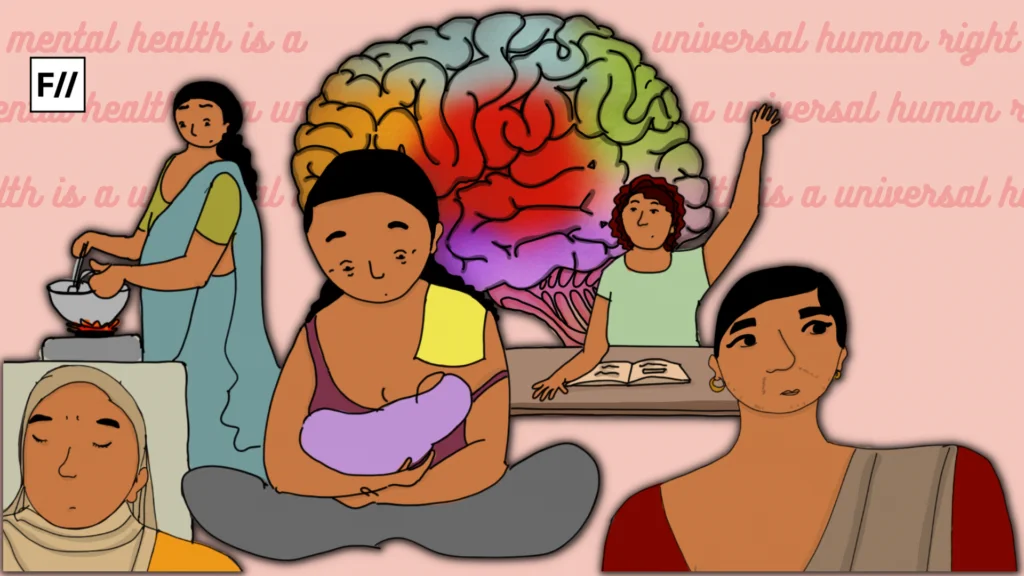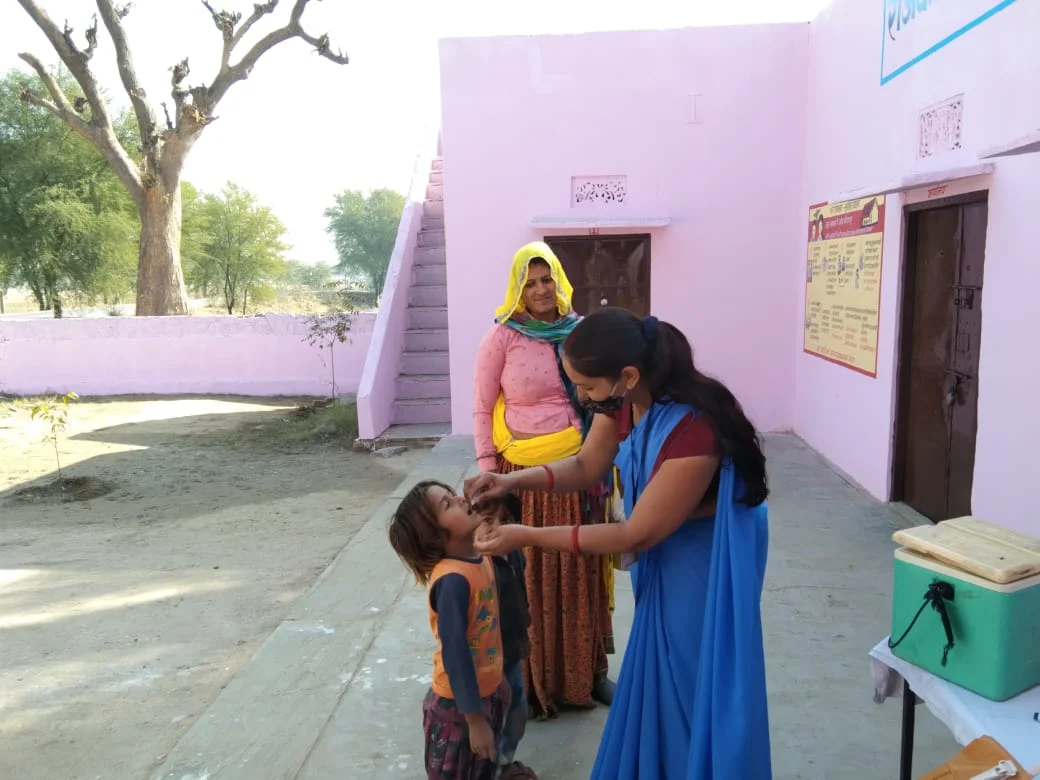According to a survey by Dr. Geetha Jayaram, a psychiatrist and professor at the Johns Hopkins Hospital, nearly one in three rural women suffers from depression and substance-based violence in a village that is just 35 km away from tech-savvy Bangalore. In a small village called Mugalur, Tumkur district of Karnataka, Dr. Geetha and her team conducted an epidemiological survey that covered as many as 17,000 households to examine the mental status and psychological healthcare requirements of mostly rural women.
The reason for her survey was simple: to examine the condition of women who have been suffering mentally for years in this region.
The reason for her survey was simple: to examine the condition of women who have been suffering mentally for years in this region. And, her primary experience culminated from her first patient: a woman in her mid-twenties who asserted, ‘a devil is sitting on my chest‘. However, she was diagnosed with panic disorder and agoraphobia – a dire illogical sense of fearfulness of going to open or crowded places, of getting out of one’s own house, or of being at places from which the possibility to escape is tough.
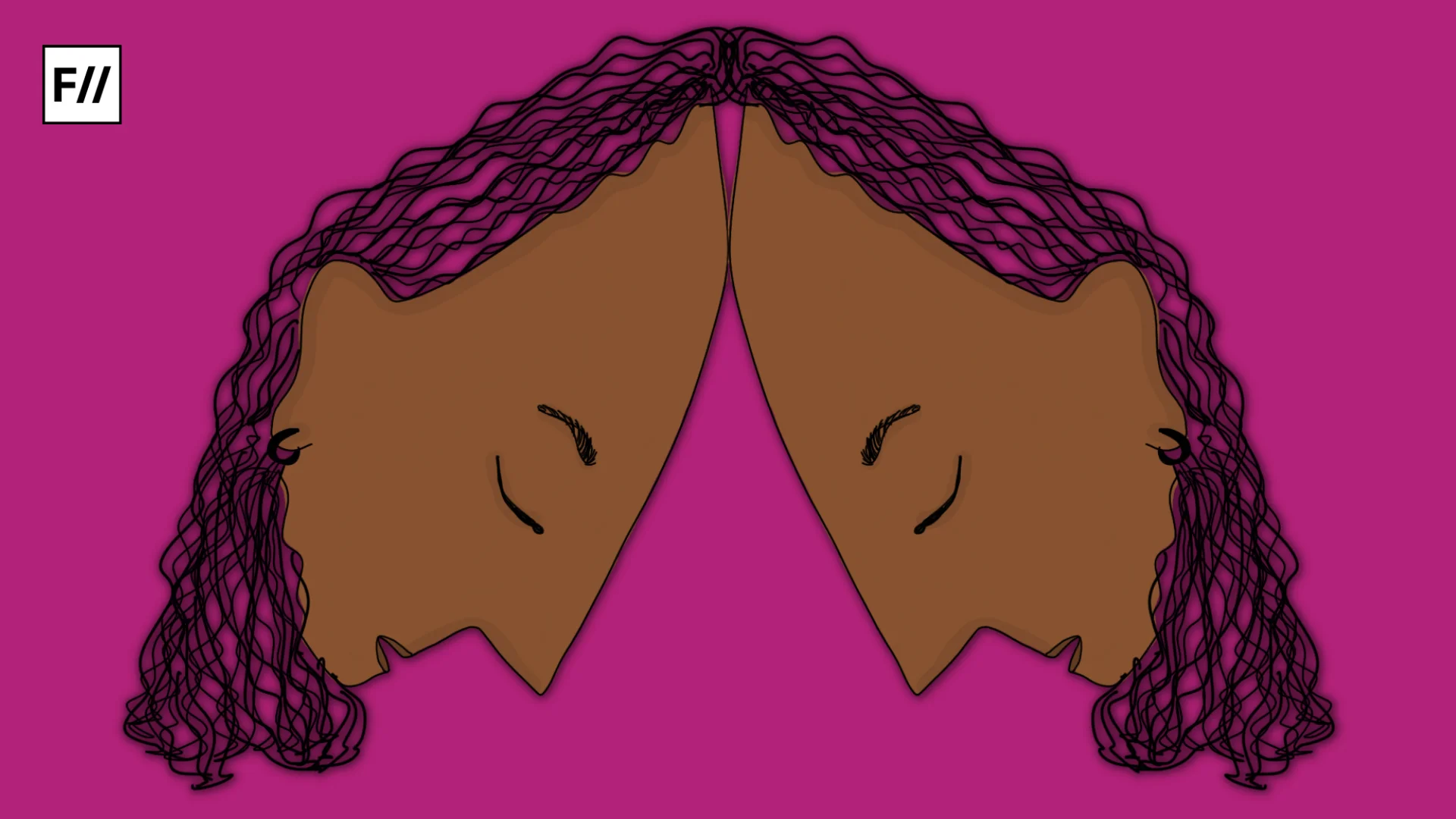
According to a report by Reasons To Be Cheerful, women in this region are married off at a tender age and treated as properties to their husbands. They are forced to marry and are often subjected to domestic abuse by their spouses. And reportedly, access to psychiatric care seems impossible here, let alone bleak. And, that is why Dr. Geetha pioneered the Maanasi Project – meaning of sound mind – which offers mental healthcare – medication and counseling – treatment at very affordable prices.
The project combines psychiatric care and primary care to offer community psychiatry aid to needy women and collectively creates a safe space for healing. The project also offers education and awareness to local women, in Mugalur village, who can eventually help those who require mental help. They work as volunteers as well. However, this is just one singular initiative by a single entity. Access to mental healthcare – a basic counseling/therapy session – seems like a distant dream for women in rural east Karnataka. Here’s why.
4 lakh women seek mental health help in Karnataka every year
According to a report published by the Times of India, nearly 4 lakh women in Karnataka alone, diagnosed with mental health disorders, have sought aid from public health institutes every year. These women reportedly have been diagnosed with premenstrual syndrome, after-childbirth depression and menopause. Other common disorders have been anxiety, depression, schizophrenia (hallucinations or delusions) and bipolar disorder.
According to Dr Pratima Murthy, psychiatry facilitator at the National Institute of Mental Health (NIMH) and Neuro Sciences in Bangalore, the origin of these mental disorders among women can stem from penury and gender-based disadvantages.
According to Dr Pratima Murthy, psychiatry facilitator at the National Institute of Mental Health (NIMH) and Neuro Sciences in Bangalore, the origin of these mental disorders among women can stem from penury and gender-based disadvantages. Among the other reasons for developing psychological illness is domestic violence, which she described as ‘intimate partner violence‘. However, in a lot of cases, women in Karnataka tend to ignore their mental diagnosis and choose to live in denial. On a very unfortunate note, the numbers reportedly are likely higher as many leave it unnoticed which can have dire results in the long run.
The southern state is mentally understaffed; let’s look at the numbers
Karnataka has been ranked third have the highest number of rural Primary Health Centres (PHCs) in India. According to a report published by The Hindu, the southwest state has 2,132 PHCs. These centres are considered to be the primary mediator between the village community and a medical official. However, the state reportedly lacks medical staff, and mental healthcare experts by being understaffed, especially in the rural side of the state.
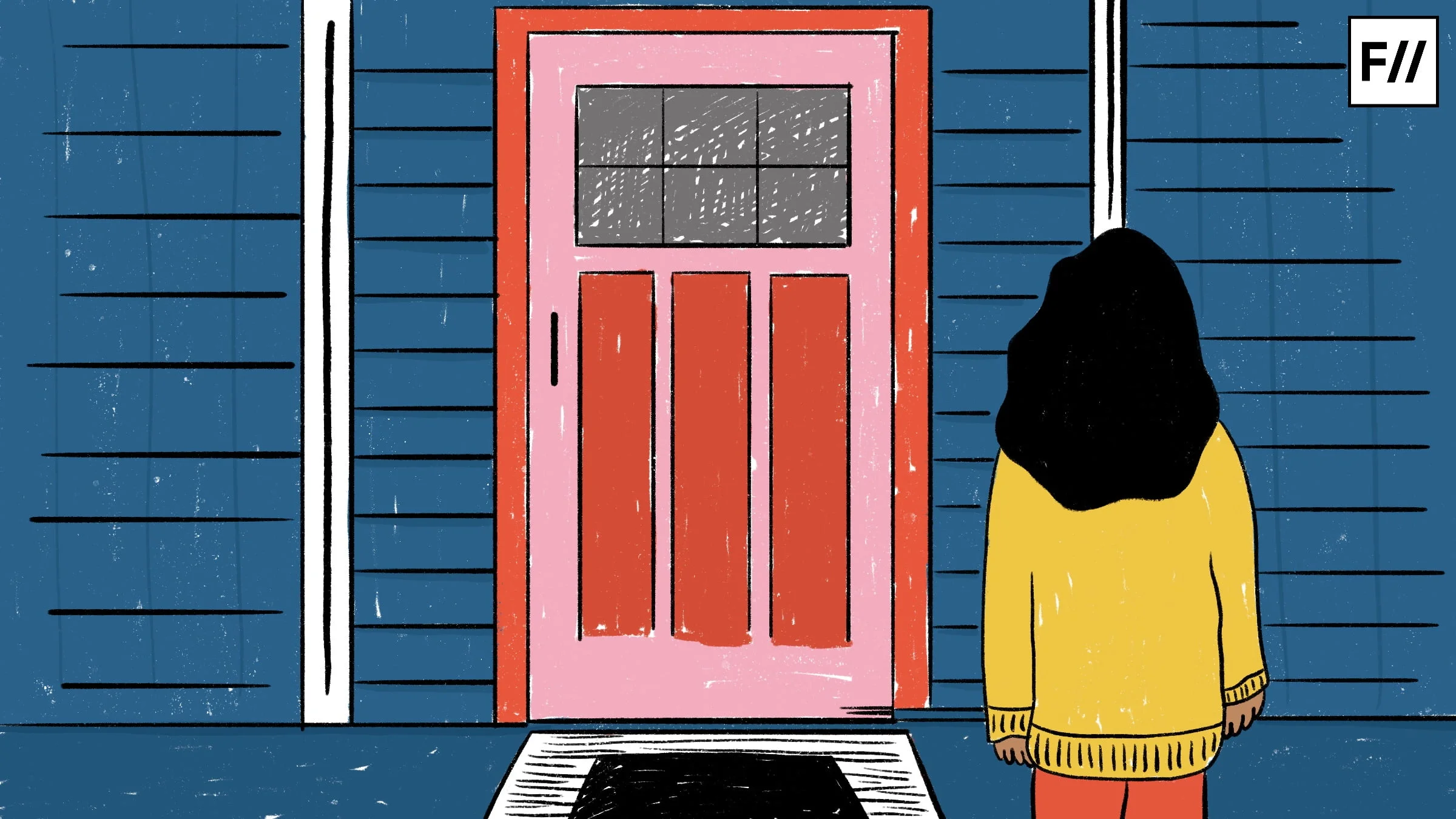
According to another report by TOI, government-run psychiatric institutes have cured as many as 37,71,182 patients in the last four years in the state. As per the reported statistics of 2022-23, state-run mental hospitals/clinics/centres alone, shorthandedly catered to 9.4 lakh mentally diagnosed patients. Though facilities related to mental health exist in all district-level centres. However, the report claims, that 26.8 percent of positions for psychiatrists, clinical psychologists, and psychiatric social workers are vacant, which tells a lot about the ground situation.
An initiative that is not big enough for women
In December 2023, Karnataka Health Minister Mr. Dinesh Gundu Rao virtually launched a mental healthcare drive for rural communities in the state. The programme, NAMAN, steered by Ashraya Hastha Trust in collaboration with multiple state departments, including the National Institute of Mental Health and Neurosciences (NIMHANS), was designed to offer mental treatment and rehabilitation to the rural population of the southern state.
The program was launched in Belur taluk (a subdivision of a district) of Hassan district in Karnataka. While launching the program, Mr. Dinesh said, ‘We aim to take mental health to the remotest place.’ However, the initiative needs to understand the vastness of the state population and its huge geographic dynamics.
The initiative only covered one taluk: Belur. But what about others? What about other women in the named taluks?
Geographically, Hassan district itself has as many as eight taluks with their headquarters in Arsikere, Channarayapatna, Belur, Holenarasipura, Sakleshpur, Alur, Arkalgud and Hassan. The initiative only covered one taluk: Belur. But what about others? What about other women in the named taluks? What about their mental well-being and welfare? For a more in-depth understanding of India’s sixth-largest state, Karnataka has 31 districts.
Roads, water, sanitation but mental health?
In August this year, the rural and panchayat gram department of Karnataka announced the development of 1,150 km of roads in the countryside of the Kalyana region of the southern state. The estimated cost of the project, which comes under the Kalyana Patha Scheme (KPS), is reportedly Rs. 1,000 crore.
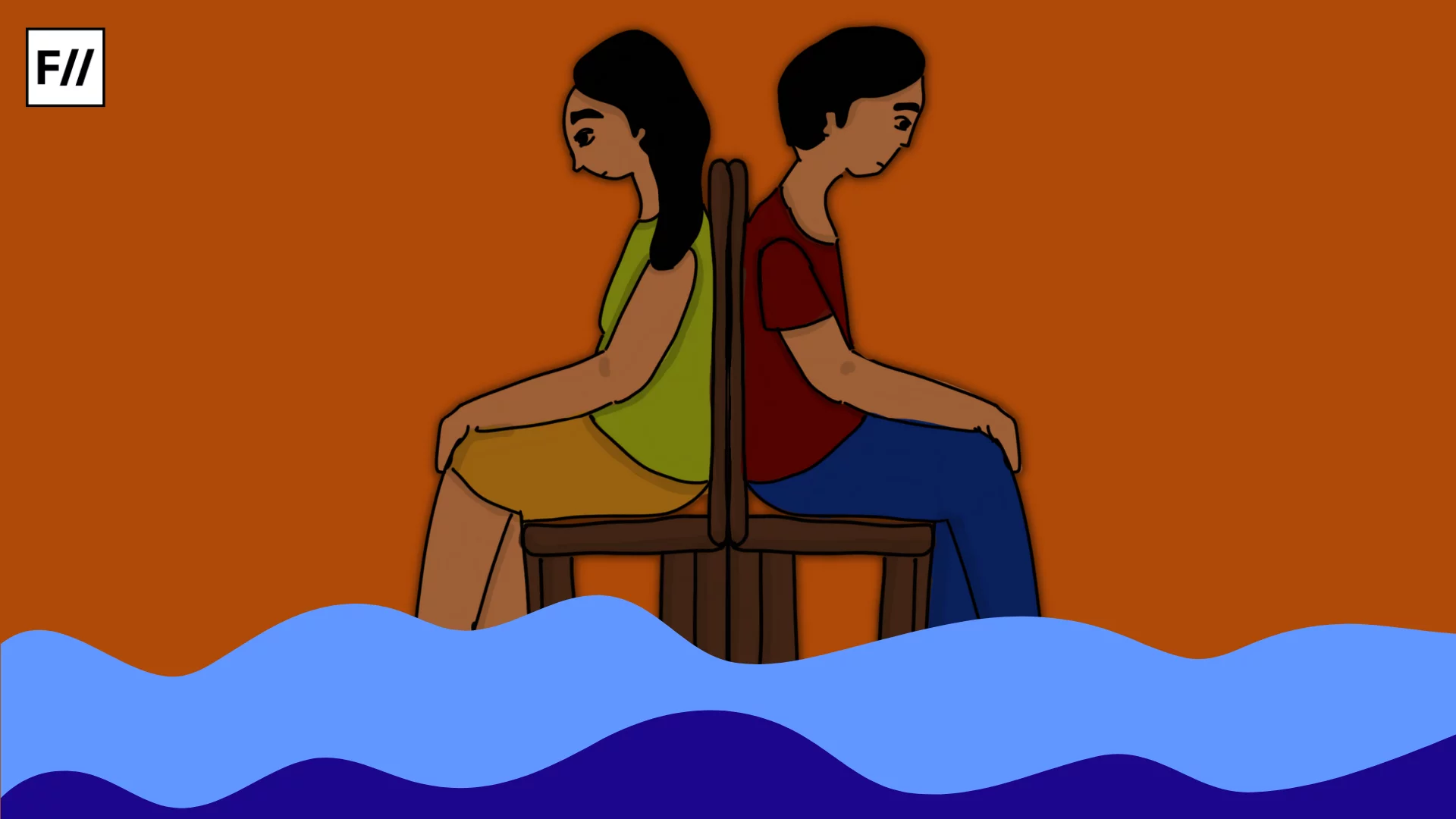
Additionally, the state will also organise a tech-driven rural water and sanitation summit in the next two weeks, October 29, to sow the seeds of water conservation and improve sanitation.
A state that has several, regional, Kannada dialects, a state that houses rural communities with dirty roads and unveiled ‘cenotaph‘ huts within the span of 30-40 km such as Mugalur’s, where women think, ‘there must be a devil in my chest‘, a state that persists to endure extremely acute water crisis citing Kaveri river dispute with neighboring Tamil Nadu, has a lot to do when it comes to combating mental health, especially for its rural women. For women who are subjected to violence, intimate partner or spouse abuse.
For reference:
